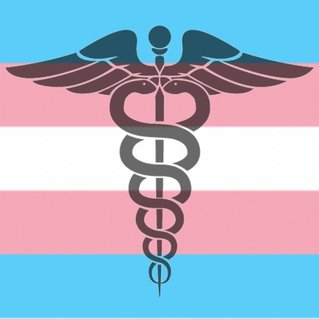Why people can fear to admit, they're transgender. Long- and short-term prospects. (IV part)8/9/2016  The third obstacle - dysphoria and access to medical treatment. In addition to all the earlier listed obstacles this one is important as well. And this one is quite pragmatic, if you understand what dysphoria is. By my words dysphoria is like inability to accept your body with most part of our mind. And because in our minds none of us has solid and complete 1 gender, sort of: my much more greater part of a personality is a men but of course, I am also a woman and a child and a grandma. Therefore my body shape/map doesn't fit my mental understanding/feeling of the shape/map and especially during more difficult times, this discrepancy causes strong desire to ignore or push away some of the mind constructs, that are ok with female shape/map of the body, and that is causing internal conflicts. There is also the desire “not to be“ in your own body. It is a painful psychologically and sometimes even physically, it can cause panic, instability, absent-mindedness, as well as impatience, exhaustion, disorientation, depression, weakness, reluctance to move, be among the people and so on. It's like working in a toxic workplace. This is not fatal, and you have enough money to live on and you are glad to find small joys in it, but your life, well-being, or even finances can improve really strongly, if you would just change this workplace. So it is possible to live and enjoy, just it is even more better to make some changes. It happens so as well, that after long-term resisting your current situation and actively reaching for the changes, you can get tired until the level, where you decide that maybe changes are not needed, or that you will just stop for some time, because suffering while trying to change the situation is unbearable and fatigue becomes too high. Usually after such a period people come back on track again, although it can be highly frightening, when you temporary lose strength to continue. This is normal and doesn't happen only for transgender people, sometimes we just loose our-selves until recovery again. I think cisgender people can also experience dysphoria, but it is significantly weaker, mind's constructs that don't fit body's shape/map are balanced in such a smaller scale that cause insignificant impact if any, and thus, doesn't cause problems and isn't notice. I do not say that they skipped those problems. People dream about the androgynous body, or at least partially containing the body of another sex characteristics, which is completely understandable. Women cut their hair short, have intense physical activity, men are lacquering nails, weave their hair into "bulk", etc. Still, if anything is consciously noticeable for cis people regarding body issue, then it's body dysmorphia and that is completely different thing. Transgenders are feeling dysphoria at some degree all the time, but often it is subconscious to hold it from interfering with other things in life, or interfere as little as possible. During heavier times or during major changes or long lasting boredom you feel it quite strongly. It is also very difficult with sexual life with others and with yourself. It is difficult to shower, mirrors, voice timbre and more things that are worrying. Sometimes dysphoria can be too high. Set of people like to be socially playful, consciously knowing or not (often unconsciously) that there isn't one solid peace of gender in the mind, so you can be called in feminine way, if you're a guy, and in manly way, if you're a girl. Thus, it's worth to stop sometimes and to figure out, where you want to draw the limit of what is invalidating your gender and what is just reminding you, that you are a person as well, no matter what gender issues. In addition I just want to mention that many jobs, activities are universal/unisex just as some men have a soprano voice for example. Treatment availability: another obstacle. In various countries there are various obstacles. In Lithuania – there isn't any official treatment procedure, documents can be changed only after the complete transition and that sounds like "bring me the sun, then I will marry you"... meah... Elsewhere, e.g.: in UK you have to wait in queues until you will get an appointment with doctors and will get medicine and required surgeries eventually, also you may also take the initiative to get treatment in private clinics. Documents are changed after doctor's approve, that you are trans. Transsexualism is considered more as sexual disorder in UK while mental one in Lithuania. Anyhow, we have to admit that it is - the disorder and that treatment is not cosmetic. What also popular among transgender persons: announce that they are healthy, but the treatment is necessary and serious.. Fully unrealistic, irrational statement. However I don't want to say that we have to read ourselves as sick all the time, just when you understand that you are sick and you need treatment, it becomes so much more convenient because you don't torture your mind with 2 complete opposite truths. World is full of people, who suffer from allergies and often use drugs, of course, diabetics and more folks with other health states, that I don't remember now or don't know, and all those people need help every day. Not everyone gets lucky enough to be born in such a way that doesn't demand any medical support/adjustment. I won't write how medical care is provided for trans people in other countries, you can find it on Internet.
0 Comments
Leave a Reply. |
This is my blog about self-knowledge, self-work, emotional healing, growth, psychology, philosophy in general and other related themes. Archives
May 2024
Categories
All
|


